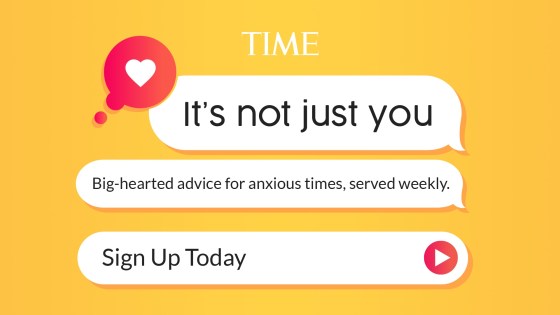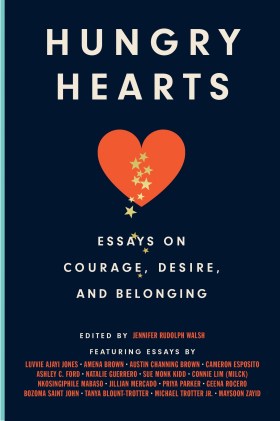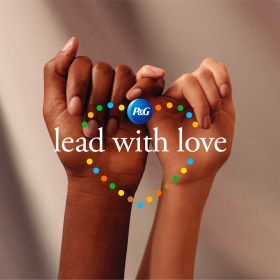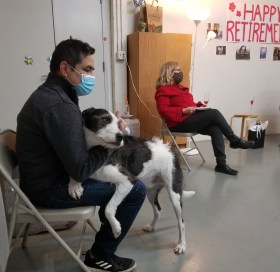A version of this article appeared in this week’s It’s Not Just You newsletter. SUBSCRIBE HERE to have an essay delivered to your inbox every Sunday.
GIVING ORDINARY LOVE ITS BEAUTIFUL DUE
The most loving thing I ever saw my father do for my mother was getting up before dawn in the permafrost of February to warm up her car. This was no small feat in rural Massachusetts. Half the time, just to get out of the house, you had to hurl yourself against the door to push through two feet of drifted snow.
Mom hated being cold more than almost anything. Her little birdy shoulders would contract at the start of winter and not unfold until the end of April. So this is what Dad did for her on minus-five-degree days when she had to be at work before 7 a.m.
What do you call the pre-dawn, de-icing-the-car kind of love? It’s love that shows up unheralded, small kindnesses on ordinary days. And I think it’s the kind of love that kept them together through trouble and strife. Though I’m not sure I realized that till I was grown and married myself, and only because I could feel its absence
<strong>But somehow, they managed the most elusive feat of all: they wove something durable from the flimsy threads of drama and romance. </strong>My parents’ life together started with a rapacious, let’s elope kind of love. They met on a ship in the middle of the Atlantic, each from the shore of a different continent. It was not a recipe for longevity.
“Most people see the problem of love primarily as that of being loved, rather than that of loving, of one’s capacity to love,” writes social philosopher Erich Fromm in The Art of Loving. “Hence the problem to them is how to be loved, how to be lovable.” He believed that loving is a skill you develop, like playing the piano or cooking.
But our dating app universe is rigged to reward the ability to create a lovable avatar of yourself. So instead of learning how to love, we’re fixated on how to attract love — or at least accumulate evidence that you are lovable. And the appetite for that kind of validation is, as we know, bottomless and addictive.
So what if we took Fromm’s advice and stopped thinking of love as a goal or a reward for being loveable. Make it a verb, a habit, like getting up to make coffee for the one who needs it most. This is the everyday practice of loving. You practice not to master the art of loving, or to stage a grand performance of love on anniversaries. You practice so that loving gets easier and isn’t such a strain on your heart. Eventually, that muscle gets stronger, and it can withstand things that would break a less-practiced heart.
By the time we’d get up for school, the car exhaust would have thawed a patch of the driveway, and Mom would be pulling on multiple pairs of mittens just to get from the back door to the old car, which was still drafty, but no longer unbearably frigid. That little bit of warmth helped her make it to summer when she’d unfurl in the sun while Dad sat under the umbrella content, and slightly sunburnt. 💌
<strong>Don’t ever think I fell for you, or fell over you. I didn’t fall in love, I rose in it.</strong>

If you’re new to It’s Not Just You, SUBSCRIBE HERE to get a weekly dose delivered to your inbox for free. Send comments and suggestions to me at Susanna@time.com.
COPING KIT ⛱
READING FOR HAPPINESS I’d never heard of bibliotherapy, but Ceridwen Dovey at the New Yorker reports that not only do bibliotherapists exist, but they prescribe a course of literature for what ails you whether it’s a broken heart or a lack of direction. As we face down at least a few more months of pandemic restrictions, it might be worth curating a transformational reading list of our own. What would you include? Note, these prescriptions aren’t for self-help books, they’re for novels and poetry. Dovey clearly has faith in their powers, writing: “I suspect that reading fiction is one of the few remaining paths to transcendence, that elusive state in which the distance between the self and the universe shrinks.”

HUNGRY HEARTS: ESSAYS ON COURAGE, DESIRE AND BELONGING Together Live is a storytelling event series featuring an inspiring array of participants from comedian Cameron Esposito to writers Ashley C. Ford and Sue Monk Kidd. And now essays from four years of touring are collected in Hungry Hearts, edited by Jennifer Rudolph Walsh. You’ll find kindred spirits in these tales of resilience, transformation, and joy. “I made my way to the edge of becoming—to that place where the desire to pursue one’s passion becomes greater than one’s fear of failure.”–Sue Monk Kidd

EVIDENCE OF HUMAN KINDNESS ❤️
Here’s your weekly reminder that creating a community of generosity elevates us all.

Theo, a 13-year old middle schooler from Hollywood, Fla., is about to have his Bar Mitzvah, a Jewish coming of age ritual for boys where the child becomes accountable for his actions in the world. Traditionally, in the months leading up to the Bar Mitzvah ceremony, the Bar Mitzvah boy (or Bat Mitzvah girl) engages in a “mitzvah” (good deed) project which aims to directly serve their community or a cause that is near and dear to them.
Many of the hands-on ways that Theo (pictured above) had hoped to make a difference were no longer an option due to the pandemic. But with the help of Pandemic of Love, Theo connected with a single mom in his own community who is raising a high-schooler with special needs as well as two younger children. The family lost their home because the mom lost her job and income. When Theo met them, they were living in a hotel. Theo decided to do a 20-mile bike-a-thon to raise money to help the family find better living conditions.
With assistance from the funds raised, the family moved into two rooms in a shared house and received help with food and other essential expenses. Every week, the family provides Theo and his mom, Cori, with a shopping list, and they go on the family’s behalf to the supermarket and drop off the groceries. This direct connection has reaffirmed Theo’s conviction that one person — of any age — can make a difference.
This story is courtesy of Shelly Tygielski, founder of Pandemic of Love, a grassroots organization that matches those who want to become donors or volunteers directly with those who’ve asked for help with essential needs.(Photo by Donna Newman.)
COMFORT CREATURES 🐕
Our weekly acknowledgment of the animals that help us make it through the storm. Meet HARLEY the workplace comfort dog, submitted by TRACIE. (Send your comfort creature photos and stories to me at Susanna@Time.com.)

🌺 Did someone forward you this newsletter? SUBSCRIBE to It’s Not Just You here.


0 Comments